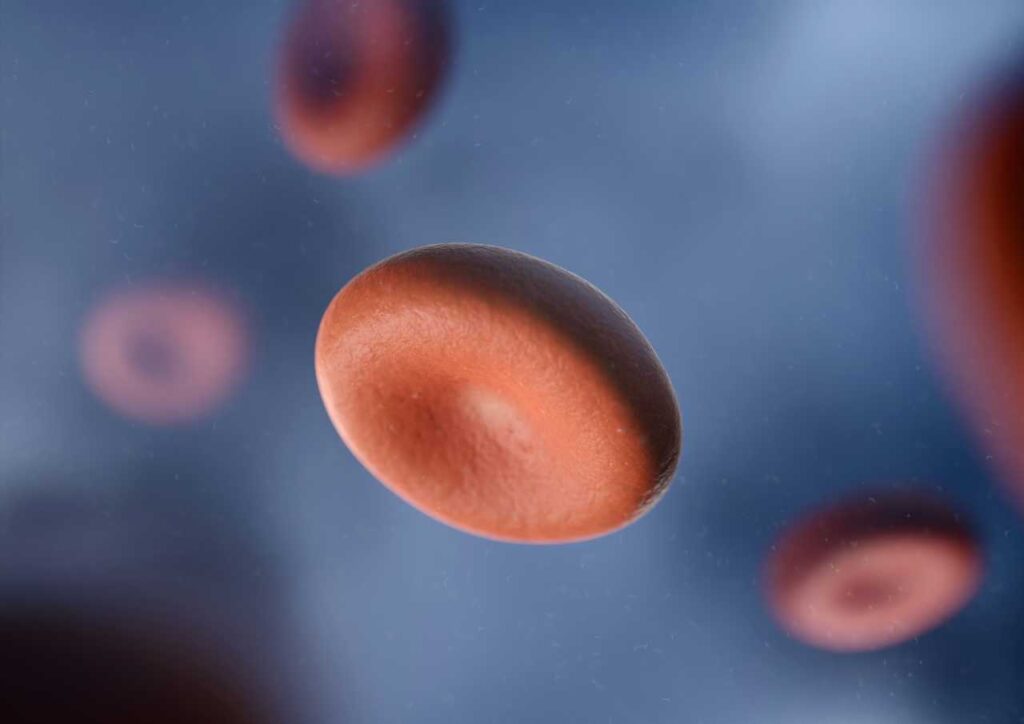A Bloodborne Pathogens Certificate is required for jobs where employees face potential exposure to human blood or other infectious materials (OPIM). OSHA mandates this certification to protect employees in various industries from health risks associated with bloodborne pathogens.
Jobs in healthcare, law enforcement, body modification, scientific research, and education often require this training to ensure safe practices. Proper certification equips workers with the knowledge to prevent exposure and respond safely to hazards in their workplace. For those in fields like tattooing or pharmacy, specialized training options are available to meet industry-specific needs.
Understanding the Bloodborne Pathogens Certificate and OSHA Requirements
If your job involves potential contact with human blood or other infectious materials, you’ve likely heard about the Bloodborne Pathogens Certificate. This certification is more than just an award; it represents essential training mandated by law to protect workers like you from serious health risks.
The Occupational Safety and Health Administration (OSHA) enforces these requirements under the Bloodborne Pathogens Standard codified as 29 CFR 1910.1030. Understanding what this standard involves will help you appreciate why the certification matters, how it safeguards your health, and what training you can expect.
What is OSHA’s Bloodborne Pathogens Standard?
OSHA’s Bloodborne Pathogens Standard is a federal regulation designed to protect workers from health hazards related to exposure to blood and other potentially infectious materials. This regulation applies to any occupational exposure that poses a risk of contact with human blood or infectious agents that can cause diseases such as HIV, hepatitis B, and hepatitis C.
The standard requires employers to:
- Develop a written Exposure Control Plan that identifies job tasks with exposure risks and implements protective measures.
- Provide proper personal protective equipment (PPE) like gloves, masks, and gowns.
- Offer training at no cost to employees who might be exposed.
- Ensure post-exposure evaluation and follow-up for workers who experience an exposure incident.
- Maintain accurate records of training, exposure incidents, and medical evaluations.
- Offer free Hepatitis B vaccinations to all workers at risk of exposure.
All these requirements aim to reduce occupational exposure risks and keep workers safe and informed.
What Does the Bloodborne Pathogens Certificate Represent?
The Bloodborne Pathogens Certificate is proof that a worker has successfully completed OSHA-compliant training. This training covers:
- Types of Bloodborne Pathogens
- Transmission of bloodborne diseases: Understanding how infections spread through blood and bodily fluids.
- Exposure prevention: Learning techniques and best practices to avoid exposure, including safe handling and disposal of sharps and contaminated materials.
- Use of personal protective equipment (PPE): Proper selection, use, and disposal of gloves, masks, eye protection, and protective clothing.
- Post-exposure protocols: Immediate steps to take after an exposure incident, including reporting procedures and medical evaluation.
Holding this certification means you have gained vital knowledge to work safely and responsibly in your environment.
Employer Responsibilities Under OSHA
Employers must play a proactive role in reducing exposure risks. They must:
- Implement an Exposure Control Plan tailored to their workplace. This plan identifies which job roles involve exposure risks and specifies control methods such as engineering controls and work practice controls.
- Provide annual training to employees at the time of initial assignment and at least annually thereafter, or if new work tasks are introduced.
- Facilitate access to medical evaluations and post-exposure follow-up if an exposure incident occurs.
- Keep training records and documentation of exposure incidents for the required period.
Training and Renewal Requirements
Training programs for Bloodborne Pathogen Certification typically last between one and two hours, depending on the course depth and the occupation involved. Because workplace hazards and OSHA standards may change, training must be renewed annually to keep certification valid. Annual refresher training ensures workers stay current with best practices and regulatory updates.
For professionals in specialized fields such as tattooing, pharmacy, or emergency medical services, tailored courses provide focused content relevant to their specific exposure risks and procedures. You can find online Bloodborne Pathogens Training for Tattoo Professionals or Bloodborne Pathogens Training for Firefighters and EMS to meet your industry’s needs.
Additional Resources
To deepen your understanding and assist with compliance, comprehensive resources are available that explain OSHA requirements in more detail and provide tools for both employees and employers. For a wide range of materials, visit the Bloodborne Pathogens Training Resources page on our site.
The Bloodborne Pathogens Certificate is your first line of defense against health risks on the job.
For official information, you can review OSHA’s full Bloodborne Pathogens Standard on their website at 1910.1030 – Bloodborne pathogens and explore OSHA’s fact sheet on the standard OSHA’s Bloodborne Pathogens Standard for a concise overview of the requirements.

Healthcare and Medical Jobs Requiring a Bloodborne Pathogens Certificate
Many healthcare and medical jobs require a Bloodborne Pathogens Certificate as workers in these roles are regularly exposed to human blood, bodily fluids, or other potentially infectious materials. These professions demand strict adherence to safety protocols to prevent the transmission of bloodborne diseases such as HIV, hepatitis B, and hepatitis C.
The certificate confirms that workers understand the hazards and proper preventive measures, making it a vital credential in healthcare environments. Below are the key healthcare roles where this certification is typically mandatory due to the nature of their daily responsibilities.
Doctors and Surgeons
Doctors and surgeons work closely with patients’ blood and bodily fluids during examinations, surgeries, and various treatments. Their direct contact with needles, scalpels, and intravenous lines increases the risk of exposure. Having a Bloodborne Pathogens Certificate ensures they know how to protect themselves and their patients from infection.
Nurses
Nurses handle blood draws, injections, wound care, and emergency medical procedures. With continuous patient interaction, they face high exposure risk. Training with a Bloodborne Pathogens Certificate teaches nurses how to use personal protective equipment (PPE) correctly, dispose of sharps safely, and respond if an exposure incident occurs.
Dentists and Dental Hygienists
Dental professionals frequently come into contact with saliva and blood during cleanings, extractions, and oral surgeries. These fluids can carry infectious agents, making bloodborne pathogen training critical. Certification highlights best practices for infection control and safe handling of contaminated tools.
Paramedics and Emergency Medical Technicians (EMTs)
Paramedics and EMTs provide urgent care in uncontrolled environments where exposure to blood and bodily fluids is common. Quick but safe action is essential in their work. The Bloodborne Pathogens Certificate equips them to prevent infections while managing emergency situations.
Medical Assistants
Medical assistants support doctors and nurses with patient care that involves phlebotomy, injections, and dressing wounds. Their role often involves handling materials that may carry infectious risks. Certification helps them apply infection control methods and protects both patients and themselves.
Laboratory Technicians
Lab technicians process blood samples, cultures, and other specimens. Handling potentially infectious materials is routine, and accidents can lead to exposure. Training certified by the Bloodborne Pathogens Certificate ensures they follow protocols to minimize risk in the lab setting.
Home Health and Personal Care Workers
Home health aides provide personal care and assistance to patients in their homes, including tasks like wound care and handling medical waste. Because they work outside traditional healthcare facilities, the risk of unregulated exposure is high. Certification helps aides understand safe practices no matter where care is provided.
Healthcare Roles Summary
Each of these roles involves unique challenges related to exposure risks. A Bloodborne Pathogens Certificate is crucial for medical workers to perform their duties confidently and safely.
For healthcare professionals looking to obtain or renew their certification, courses specific to the healthcare environment provide the knowledge and compliance needed. Consider exploring OSHA Bloodborne Pathogens: Healthcare Worker courses available online to meet your training requirements with ease and accuracy. You can find more about such training in the Bloodborne Pathogens for Healthcare Workers course.
Additionally, healthcare workers may benefit from comprehensive packages like the Healthcare Training Starter Bundle that covers bloodborne pathogens along with other critical certifications.
For continued safety and compliance, employers and workers alike should prioritize getting certified and renewing training annually to stay updated with OSHA standards and best practices.
On a wider scale, keeping well-trained and certified healthcare staff is essential to protecting public health and workplace safety.
For real-time job opportunities requiring this certification, explore listings on job platforms like Indeed’s Bloodborne Pathogens jobs or ZipRecruiter Bloodborne Pathogens openings. These listings highlight the demand for certified professionals across healthcare roles.

Non-Healthcare Jobs That Require Bloodborne Pathogens Certification
While healthcare jobs are the most common occupations requiring a Bloodborne Pathogens Certificate, several non-healthcare professions also face exposure risks. These workers encounter situations that involve blood or other potentially infectious materials as part of their job responsibilities. Because of this, they must complete proper training to protect themselves and others. Understanding which non-medical roles require certification helps clarify the broad scope of OSHA’s Bloodborne Pathogens Standard and why the certificate is important beyond clinical settings.
Below are key non-healthcare jobs where Bloodborne Pathogens certification is essential.
General Industry Roles
There are a surprising amount of jobs in general industry that require a bloodborne pathogens certificate. There is no definitive list as the onus is on the employer to make an exposure determination. Some roles that do often require certification include:
- Restaurant and hospitality workers who handle food or beverages in any capacity
- Some construction roles
- Some warehouse roles
- Many roles in general manufacturing.
Public Safety and Law Enforcement Personnel
Police officers, firefighters, and correctional facility employees frequently encounter blood or bodily fluids during their duties. Whether responding to accidents, crime scenes, or emergencies, they face exposure risks that require immediate action combined with safety precautions. Their training ensures they use personal protective equipment (PPE) correctly, handle contaminated materials safely, and follow post-exposure protocols when needed.
- Police officers handle evidence and may deal with injured individuals.
- Firefighters often provide emergency first aid in dynamic environments.
- Correctional officers work closely with inmates who might carry infectious diseases.
These frontline responders rely on their Bloodborne Pathogens Certificate to perform safely under pressure.
Personal Care and Body Modification Workers
This group includes tattoo artists, microbladers, piercing professionals, and cosmetologists. They deal with needles, skin punctures, and fluids daily. Proper training helps them control the risk of transmitting infections between clients and themselves. Certification covers sterilization techniques, safe disposal of sharps, and hygiene practices tailored specifically for their industry.
- Tattoo and piercing artists must prevent cross-contamination in studio environments.
- Cosmetologists occasionally encounter cuts or fluid exposure during treatments.
Because their work involves potential contact with blood, Bloodborne Pathogens Certification for tattoo artists protects both clients and practitioners.
Pharmacists and Pharmacy Employees
Pharmacy employees may be exposed to blood and other potentially infectious materials (OPIM) while working at a drugstore. They may also offer services such as vaccination or blood glucose testing.
Any pharmacy employee who could potentially be exposed to human blood or OPIM in the line of duty must have valid BBP certification, usually the healthcare specific course.
Educators, Daycare Staff, and Coaches
Workers in educational settings may have to respond to incidents involving blood from cuts, scrapes, or accidents. Daycare providers have contact with young children who are more prone to injuries and infections. Coaches supervise sports activities where bleeding injuries are possible.
These professionals must be trained to:
- Safely manage blood spills.
- Use gloves and other protective equipment.
- Follow procedures for cleaning and disinfecting exposed areas.
Having a Bloodborne Pathogens Certificate ensures they act responsibly to minimize health risks in these settings.
Janitorial and Laundry Workers
Though often overlooked, janitorial and laundry staff can face exposure risks through contaminated cleaning and waste materials. Blood and bodily fluids on floors, linens, or trash require strict handling protocols. Certification provides knowledge on:
- Proper use of disinfectants.
- PPE requirements during cleaning.
- Safe disposal of contaminated materials.
Their role in maintaining a clean and safe environment demands awareness of infection control measures.
Morticians and Funeral Home Workers
Mortuary staff regularly deal with deceased bodies that may carry infectious diseases. Handling tissues and bodily fluids requires thorough training to prevent exposure. The Bloodborne Pathogens Certificate guides morticians on the use of barriers, sharps management, and decontamination procedures crucial to their work.
Laboratory Researchers Outside Healthcare
Certain scientific researchers working in labs outside typical medical settings still handle blood or infectious materials. For example, biotech firms or forensic labs may require staff to have bloodborne pathogens training. Certification ensures researchers follow protocols for sample handling and spill response, maintaining a safe workplace.
Summary
In non-healthcare roles, having a Bloodborne Pathogens Certificate can be the difference between safe working conditions and potentially dangerous exposures. Employers in these fields are required by OSHA to offer training and compliance to protect their workforce.
For those in personal care or emergency response roles, specialized Bloodborne Pathogens training is available to address unique workplace hazards and responsibilities. Consider exploring courses designed for your sector to meet OSHA standards effectively.
For the most frequently asked questions about Bloodborne Pathogens you can check the FAQ.


